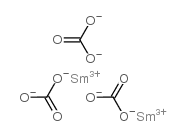5895-47-6
| 中文名 | 碳酸钐n水 |
|---|---|
| 英文名 | 2-benzylsulfanyl-5,6-dimethyl-3-prop-2-enylthieno[2,3-d]pyrimidin-4-one |
| 中文别名 | 碳酸钐 |
| 英文别名 | EINECS 227-581-5 |
| 沸点 | 333.6ºC at 760 mmHg |
|---|---|
| 熔点 | >500ºC (dec.) |
| 分子式 | C18H18N2OS2 |
| 分子量 | 342.47800 |
| 闪点 | 169.8ºC |
| 精确质量 | 342.08600 |
| PSA | 88.43000 |
| LogP | 4.55310 |
| 储存条件 | 常温,避光,阴凉干燥处,密封保存 |
| 稳定性 | 常温常压下稳定 |
| 计算化学 | 1.疏水参数计算参考值(XlogP):4.7 2.氢键供体数量:0 3.氢键受体数量:4 4.可旋转化学键数量:5 5.互变异构体数量:无 6.拓扑分子极性表面积86.2 7.重原子数量:23 8.表面电荷:0 9.复杂度:487 10.同位素原子数量:0 11.确定原子立构中心数量:0 12.不确定原子立构中心数量:0 13.确定化学键立构中心数量:0 14.不确定化学键立构中心数量:0 15.共价键单元数量:1 |
| 更多 | 1. 性状:未确定 2. 密度(g/mL,25/4℃):未确定 3. 相对蒸汽密度(g/mL,空气=1):未确定 4. 熔点(ºC):>500 5. 沸点(ºC,常压):未确定 6. 沸点(ºC,5.2kPa):未确定 7. 折射率:未确定 8. 闪点(ºC):未确定 9. 比旋光度(º):未确定 10. 自燃点或引燃温度(ºC):未确定 11. 蒸气压(kPa,25ºC):未确定 12. 饱和蒸气压(kPa,60ºC):未确定 13. 燃烧热(KJ/mol):未确定 14. 临界温度(ºC):未确定 15. 临界压力(KPa):未确定 16. 油水(辛醇/水)分配系数的对数值:未确定 17. 爆炸上限(%,V/V):未确定 18. 爆炸下限(%,V/V):未确定 19. 溶解性:未确定 |
|
Section 1: Product Identification Chemical Name:Samarium (III) carbonate hydrate (99.9%-Sm) (REO) CAS Registry Number:5895-47-6 Formula:Sm2(CO3)3.XH2O EINECS Number:227-581-5 Chemical Family:metal carbonate Synonym:Carbonic acid samarium salt (3:2)
Section 2: Composition and Information on Ingredients IngredientCAS NumberPercentACGIH (TWA)OSHA (PEL) Title Compound5895-47-6100%no datano data Section 3: Hazards Identification Emergency Overview:May be irritating to eyes, skin and respiratory tract. May be harmful if swallowed. Primary Routes of Exposure:Ingestion, inhalation Eye Contact:May cause slight to mild irritation of the eyes. Skin Contact:May cause slight to mild irritation of the skin. Inhalation:May be irritating to the nose, mucous membranes and respiratory tract. Ingestion:Ingestion may lead to dizziness, abdominal cramps, vomiting, bloody diarrhea, weakness, and convulsions. Acute Health Affects:May be irritating to skin, eyes and respiratory tract. Chronic Health Affects:No information available on long-term chronic effects. NTP:No IARC:No OSHA:No SECTION 4: First Aid Measures Immediately flush the eyes with copious amounts of water for at least 10-15 minutes. A victim may need Eye Exposure: assistance in keeping their eye lids open. Get immediate medical attention. Wash the affected area with water. Remove contaminated clothes if necessary. Seek medical assistance if Skin Exposure: irritation persists. Remove the victim to fresh air. Closely monitor the victim for signs of respiratory problems, such as difficulty Inhalation: in breathing, coughing, wheezing, or pain. In such cases seek immediate medical assistance. Seek medical attention immediately. Keep the victim calm. Give the victim water (only if conscious). Induce Ingestion: vomiting only if directed by medical personnel. SECTION 5: Fire Fighting Measures Flash Point:not applicable Autoignition Temperature:none Explosion Limits:none Extinguishing Medium:none required If involved in a fire, fire fighters should be equipped with a NIOSH approved positive pressure self-contained Special Fire Fighting Procedures: breathing apparatus and full protective clothing. Hazardous Combustion andNone Decomposion Products: Unusual Fire or Explosion Hazards: No unusual fire or explosion hazards. SECTION 6: Accidental Release Measures Spill and Leak Procedures:Small spills can be mixed with powdered sodium carbonate or ground limestone and swept up. SECTION 7: Handling and Storage Handling and Storage:Store material in a tightly sealed bottle away from moisture. SECTION 8: Exposure Controls and Personal Protection Eye Protection:Always wear approved safety glasses when handling a chemical substance in the laboratory. Skin Protection:Wear protective clothes and gloves. Consult glove manufacturer to determine the proper type of glove. Ventilation:If possible, handle the material in an efficient fume hood. In the absence of adequate ventilation a respirator should be worn. The use of a respiratory requires a Respirator: Respirator Protection Program to be in compliance with 29 CFR 1910.134. Ventilation:If possible, handle the material in an efficient fume hood. Additional Protection:No additional protection required. SECTION 9: Physical and Chemical Properties Color and Form:white to light yellow pwdr. Molecular Weight:480.72 Melting Point:>500° dec. Boiling Point:no data Vapor Pressure:not applicable Specific Gravity:no data Odor:none Solubility in Water:insoluble SECTION 10: Stability and Reactivity Stability:air and moisture stable Hazardous Polymerization:no hazardous polymerization Conditions to Avoid:Strong acids Incompatibility:Mineral acids Decomposition Products:none SECTION 11: Toxicological Information RTECS Data:No information available in the RTECS files. Carcinogenic Effects:no data Mutagenic Effects:no data Tetratogenic Effects:no data SECTION 12: Ecological Information Ecological Information:No information available SECTION 13: Disposal Considerations Disposal:Dispose of according to local, state and federal regulations. SECTION 14: Transportation Shipping Name (CFR):Non-hazardous Hazard Class (CFR):NA Additional Hazard Class (CFR):NA Packaging Group (CFR):NA UN ID Number (CFR):NA Shipping Name (IATA):Non-hazardous Hazard Class (IATA):NA Additional Hazard Class (IATA):NA Packaging Group (IATA):NA UN ID Number (IATA):NA SECTION 15: Regulatory Information TSCA:Listed in the TSCA inventory. SARA (Title 313):Title compound not listed Second Ingredient:none SECTION 16 - ADDITIONAL INFORMATION N/A |
|
生态学数据: 通常对水是不危害的,若无政府许可,勿将材料排入周围环境.
|


